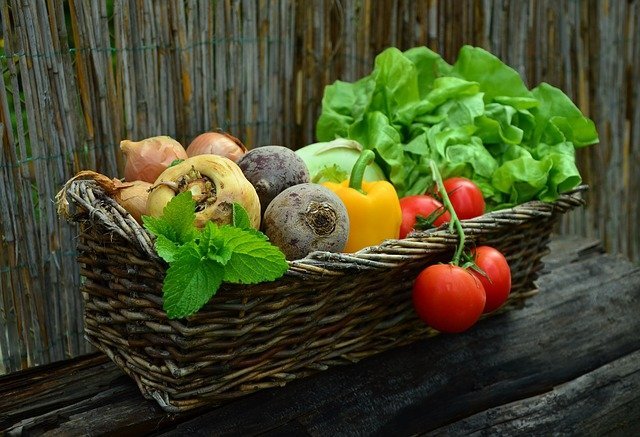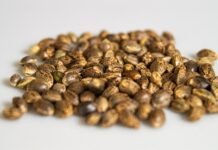Giving your body the right foods can keep the immune system strong. After the pandemic, we are all looking for ways to strengthen our immunity, prevent flu, colds, and other infections. There is no sure-shot way to prevent the disease but eating the right type of food can make a lot of difference. There is no supplement that can cure a disease but it can help prevent it. Here are some foods that will help build immunity.
- Garlic
One of the most important elements of all cuisines in the world, garlic is added to a lot of dishes. It is a must-have for your health and adds a zing to your food. A lot of people have realized its importance in fighting infections and have used garlic for many years. It slows down the hardening of your arteries and will also help lower blood pressure. The immune-boosting properties of garlic come from the high concentration of sulphur-containing compounds like allicin. Adding garlic to your diet can make a lot of difference to your health and wellbeing.
- Citrus fruits
There are many people who load up on Vitamin C once they are down with a cold because it will help build the immune system. When you take Vitamin C, it will increase the number of white blood cells in the body, which is a key to fighting infections. Out of all the citrus fruits that have vitamin C, you can choose to add any one to your diet. Your options include oranges, lemons, grapefruit, limes, tangerines, and clementines. Remember, your body will not produce Vitamin C on its own and you will have to continue to take the daily dose for good health. You can also consider taking supplements if needed.
- Green Tea
Besides consuming adequate water, it also helps to consume tea. You can use a water softener system to ensure that the water that enters your body is high quality. Further, Green tea and black tea are packed with flavonoids. It is a type of antioxidant but green tea has high levels of epigallocatechin gallate which is a strong antioxidant. The antioxidant can enhance immune function. Since green tea is steamed and not fermented the antioxidant is preserved. The tea is also an ideal source of amino acid L-theanine which helps in the production of germs that can fight compounds in the T cells.
- Ginger
Another ingredient that you might turn to when sick is ginger and it can work in several ways. It helps decrease inflammation and helps reduce a sore throat as well as inflammatory illnesses. It can also help in nausea. Ginger is used in many sweet dishes as it packs heat. It can help reduce chronic pain and could also reduce cholesterol.
- Yogurt
When it comes to yogurt, go for Greek yogurt. It will enhance the immune system and will help you fight diseases. You should try to get plain yogurts instead of flavored yogurts or the ones loaded with sugar. It is easy to sweeten the yogurt with the addition of a little honey or fruits. Yogurt can also be an ideal source of vitamin D so you must select the brands that have this vitamin. It will help regulate the immune system and boost the natural defenses of the body against diseases.
- Turmeric
A key ingredient in many curries, turmeric is a bright yellow, bitter spice that has been used for many years. It helps in treating rheumatoid arthritis and osteoarthritis. It is anti-inflammatory and has high levels of Curcumin which will give it a yellow color. Turmeric also helps reduce the exercise-induced damage to your muscles and is an ideal immune booster.
- Almonds
Nothing can fight cold like almonds can. It has vitamin E which is a strong antioxidant and is the key to a healthy immune system. It is a fat-soluble vitamin and it needs the fat to be absorbed well. Even nuts are packed with vitamins and have healthy fats. Regular consumption of almonds can help build strong immunity and keep you safe from a common cold. A half-cup of almond is ideal for daily consumption for most adults.
- Spinach
Spinach is rich in Vitamin-C that increase the immunity and the ability to fight infections. Moreover, the vegetable has beta carotene and many antioxidants that boost the immunity. Just like broccoli, spinach gets left with more nutrient, when it is lightly-cooked. Even the light cooking helps in absorbing Vitamin A that allows releasing other nutrients such as oxalic acid and many more.
- Red Bell Peppers
Red bell peppers are another great source of Vitamin- C and beta carotene. Mostly people believe that only citrus fruits contain Vitamin-C, however, that is not true. As red bell peppers contain 127mg Vitamin-C, that is 3 times more than the Florida Orange that contains 45mg of Vitamin-C.
Another great advantage of Vitamin C is that apart from boosting immunity it also helps people to maintain healthy skin. Additionally, the Beta carotene gets converted to Vitamin A in living bodies, that promotes healthy eyes and skin.
- Sunflower Seeds
Sunflower seeds are rich with nutrients like vitamin B-6, phosphorous, magnesium, Vitamin-E etc. Vitamin E promotes good skin along with it also helps in maintain and regulating the body’s immune system. In addition, sunflower seeds contain selenium; which studies have proved that is effective in fighting serious infections like swine flu.
These are some of the foods that can help build immunity. It will keep you safe from several diseases and will help prevent common infections like flu and cold. However, in case of illness, it is recommended to visit a doctor and not rely on these foods. They can build strong immunity but cannot cure you. Regular consumption of these food items will improve your health and wellbeing. It is also recommended to keep the ideal dosage in mind and then consume them. If you are using supplements, speak to a medical professional first.


























